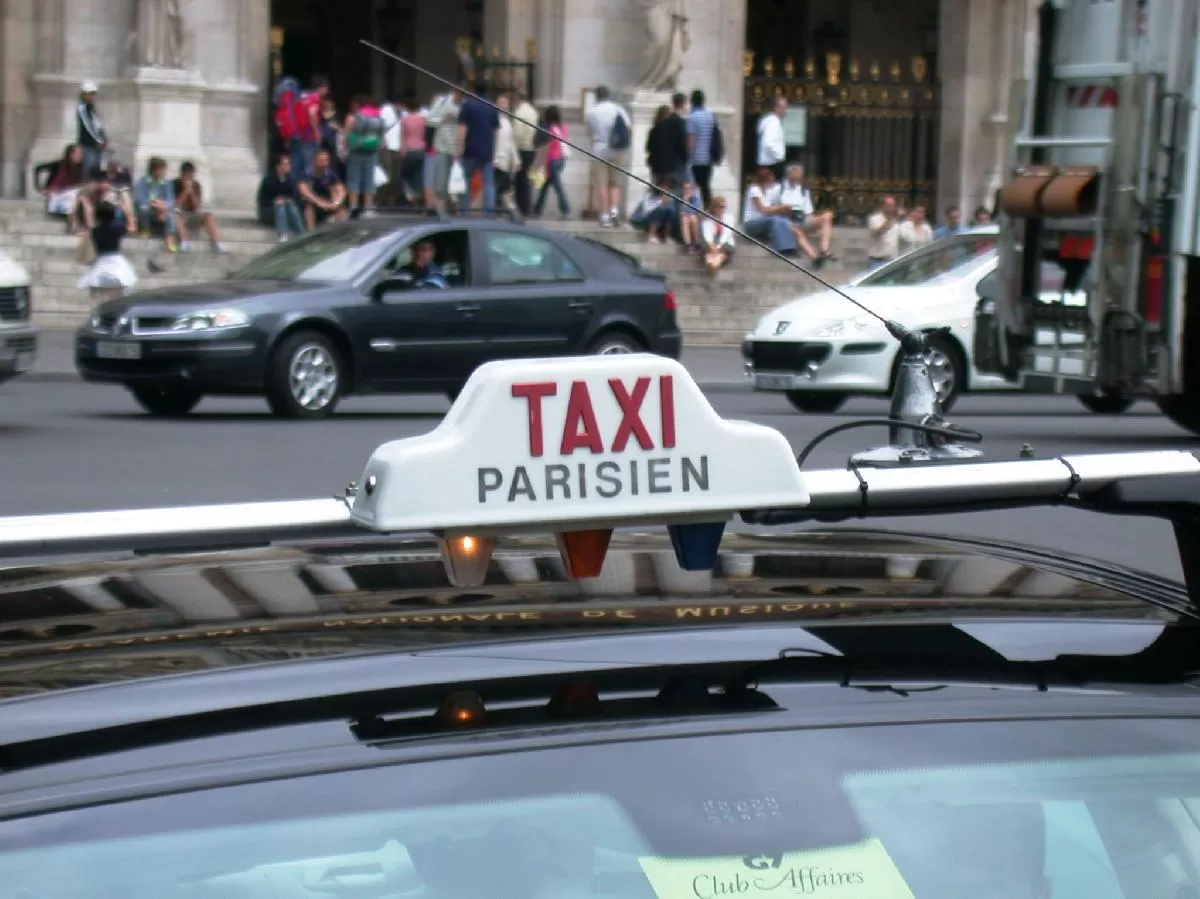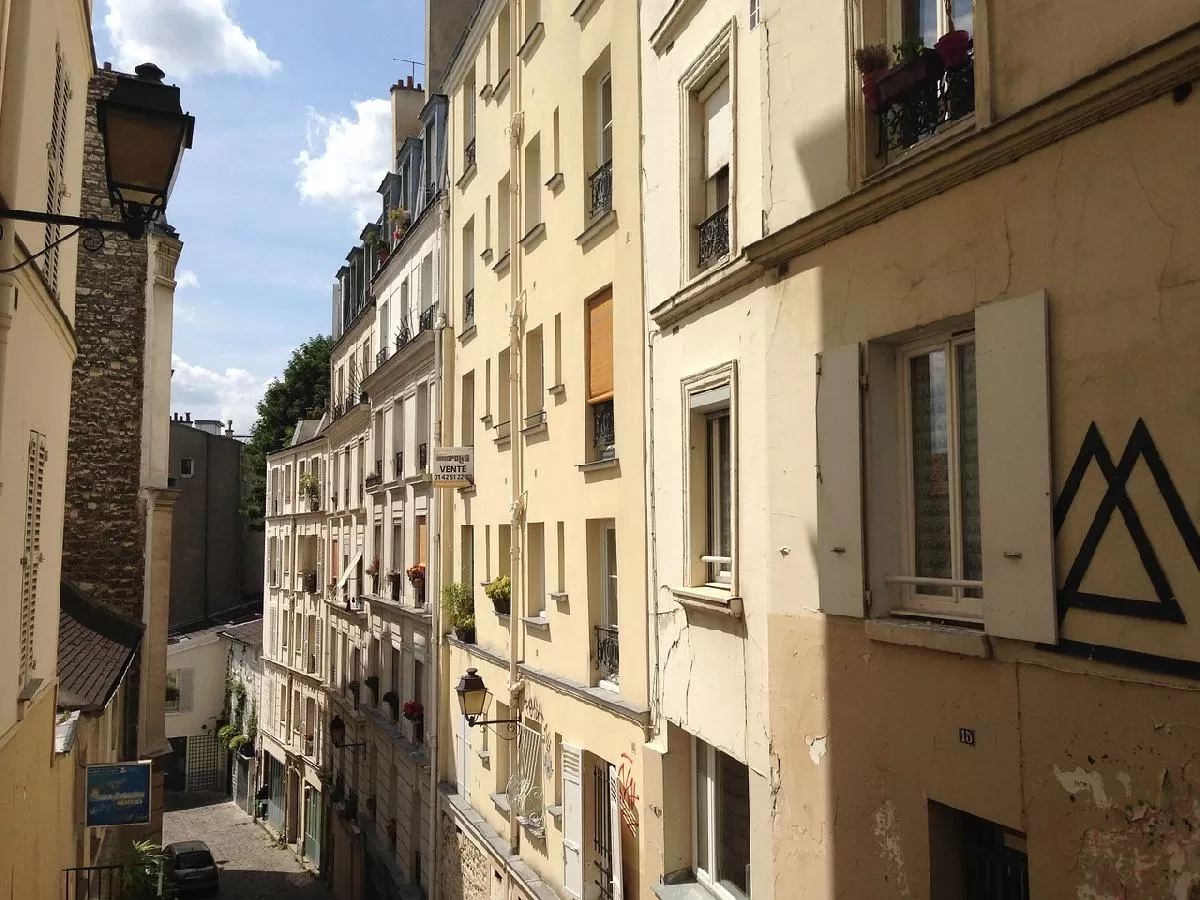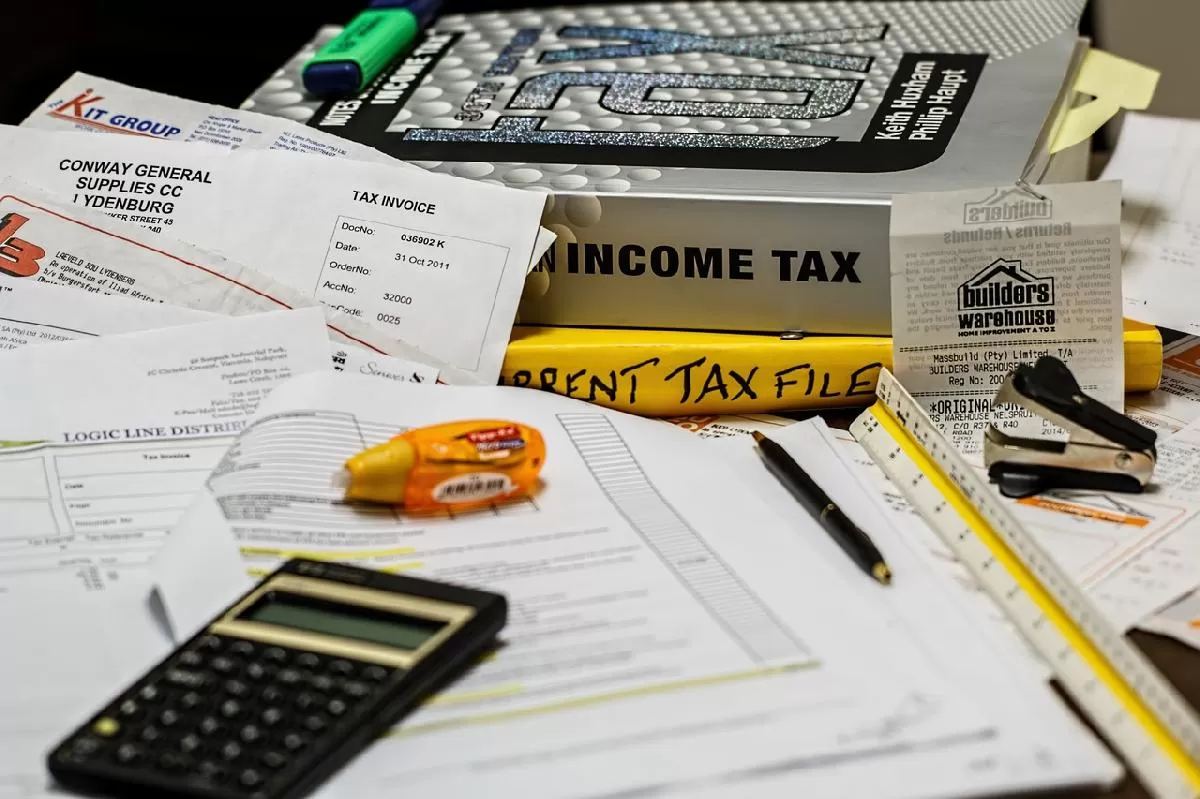
Overview

There are about 11.2 million people living in Paris right now. Though it's the seat of power in France, home to the country’s president, it's become a multicultural metropolis that houses all sorts of ethnicities, nationalities, and races. The city is divided into 20 districts called arrondissements wherein various neighborhoods take up one or more areas. And as you'd expect, French remains the dominant language in Paris.
What Do You Need to Know Before Moving to Paris?
Beyond the general stuff, it's worth knowing that getting your paperwork done is an arduous process. Get ready to go back to various bureaucratic offices again and again and make sure you have multiple copies of the required documents. This is especially true for immigrants moving to Paris from outside of the EU. At the very least, France offers you a good many healthcare options. Though its universal system is good enough, private insurers also have great premiums you ought to check out too. And one last thing, locals are hesitant to speak English. You're the one who has to learn French.
Why Move to Paris?
Typically, people would move to Paris because of their jobs. The French capital is a pretty important business hub, after all. This is very common. But beyond that, you'll want to move to Paris for its food, fashion, and fun. You've seen how glamorous it all looks in the movies set in Paris, right? Well, the city really is like that, at least various parts are. Fantripper even noted how the hit Netflix series, “Emily in Paris,” changed the way Americans look at the French. Just like other works in media set in or depict Paris, the series has helped spike the number of expats moving to the city. At the same time, the people here are very welcoming and exciting too. Paris is becoming known for its open and liberal society. Who knows what sorts of adventures you get into here?
Visa

Before you even think about settling down in Paris, you need to know if you're allowed to go here in the first place. In other words, do you have a visa? Various countries—including France—require travelers and expatriates to have the correct visa before letting them in. It's important to note that the visa for traveling to Paris as a tourist and the one you need to live there legally is different.
Do You Need a Visa to Visit Paris?
Whether you need a visa to go to Paris or not depends on where you're coming from. If you're an EU citizen, for example, which means you live in any of the other member-states of the European Union, then you don't need a visa. And if you're not an EU citizen, however, you will need a visa just to visit Paris, let alone to live here. Still, there's also the possibility that you're eligible for the ETIAS Visa Waiver Program, wherein citizens of selected countries are allowed entry into France without a visa.
Which Visa is Required for Paris?
Schengen Visa is what you need to enter France and get to Paris if you're a non-EU citizen. This lets you stay in the country for a limited time. If you plan to relocate to Paris, you'll need to apply for a D visa (long-stay visa). The type you'll get depends on your specific situation (i.e. nature of staying in France, current occupation, etc.). Once you've reached the time limit on your D visa, you'll then need to apply for a residence permit.
How Can You Get a Paris Visa?
The process for applying for a Schengen Visa differs from country to country. Generally, the French embassy would ask you to fill out an application form, submit important documents, and in many cases, even invite you over for an interview. You'll also have to pay an application fee, the price of which also depends on where you're applying. The process is largely the same for applying for a D visa, but expect to submit more documents and you'll definitely get interviewed if you're applying by yourself.
How Long Can You Stay in Paris Without a Visa?
As mentioned earlier, EU citizens don't need a visa to enter France and go to Paris. They do, however, have a time limit. They can only stay in France for three months before needing to apply for a residence permit if they intend to stay longer or move to the country altogether.
Getting Around

Since Paris is a big city, public transport is a lifesaver. Not everyone can afford their own cars, after all, so the city has put various systems in place to help people get around. There are the Paris Métro, buses, taxis, bikes, and ride-hailing transportation apps. You have loads of options to get to where you need to be.
How to Get Around Paris
As already mentioned, there are a couple of ways you can get around Paris. The most common is the underground Métro, which has several lines that travel to different parts of the city. It's your best option to get to your destination as quickly as you can because it faces no eternal problems like various jams, road accidents, and the like. If you prefer to stay above ground, there are taxis and buses instead. Taxis can be quite expensive depending on where you're going. Buses, on the other hand, have various routes. You'll need to go on the right one to ensure you'll reach your destination. And if you’re coming from the airport, you can avail of our airport transfer service in Paris.
What is The Cheapest Way to Get Around Paris?
Out of all the modes of public transportation mentioned so far, the Paris Métro is the cheapest way to get around. A single ticket only costs €2.10. At the same time, the day passes for one to seven days all cost less than €80.00.
How to Get Around The Paris Métro
Navigating the Paris Métro on your first time is not easy. But it's also not impossible. The most basic things that you need to remember are the stations in each district, how much a ticket costs (€2.10 per single ride), and that you should always keep moving. It's important to remember the rush hours too, which are typically between 08:00 am to 10:00 am in the morning and 17:00 (5:00) pm to 20:00 (8:00) pm in the evening
How to Get Around Paris Without a Car
Let's say you don't have a car and you're not too keen on taking the métro, a taxi, or the bus. Are there other ways to get around Paris? Yes, there are. One of which is getting/renting a bike. Paris is a bike-friendly city with various lanes laid out throughout the different districts. Though Parisians typically have their own, there are also many rentals around town. You can even rent them through their apps too. And when all else fails, walking around Paris isn't a bad idea too.
Where to Live

As previously mentioned, Paris is divided into 20 arrondissements. Do take note that these aren't necessarily the famous areas like Montmartre, Montparnasse, Passy, and the like. An arrondissement is an administrative district that includes parts of different neighborhoods in Paris.
Which Arrondissement Should You Stay in Paris?
The arrondissement you choose as your new home in Paris should depend on you, your needs, and your lifestyle. Let's say you're a well-off employee with money to spare. You can afford to live in the more upscale districts such as the 1st, 3rd, 4th, 7th, 8th, 9th, and beyond. If you're a student, you'll likely have to stay in the 5th arrondissement as the place is home to the most notable universities in the city. And if you need to stick to a strict budget, the 19th and 20th arrondissements are the places for you.
Which District Should You Stay in Paris?
Even if you've already chosen an arrondissement, the specific district within that area also matters. Let's say you settled down in the 18th arrondissement of Paris with your family. You should stay in Montmartre since it's the more family-friendly part of the area. Pigalle, on the other hand, which is also in the 18th arrondissement, is notorious as the red-light district of Paris. See how a specific neighborhood in an arrondissement is important?
Costs of Living in Paris

Perhaps the most important thing to consider when moving to Paris—or to any other place, for that matter!—is if you can afford to go there. The cost of living in Paris isn't low. In fact, many would say that it's notably high, even compared to other major cities. Can you afford to move to Paris and live there for a long time? Possibly even the rest of your life?
Is Paris Expensive?
You don't need a relocation guide to tell you that Paris is an expensive city. The French capital is known for luxury, after all, from haute couture to haute cuisine. The airfare ticket to Paris alone can already cost a lot. What more when you need a place to stay—be it in a hotel or by renting an apartment—eat out, see the sights, go shopping, and more?
Is It Expensive to Live in Paris?
As you probably expected, it is expensive to live in Paris. According to Numbeo, the cost of living for a single adult in Paris €1,041.50 per month, and that's without the rent yet. For a family of four, on the other hand, they usually spend around €3,713.10 without rent. And speaking of rent, the monthly fees here typically range from a minimum of €700.00 to €4,000.00.
How Much Does it Cost to Move to Paris?
No one can truly say exactly how much it costs to move to Paris. It depends on a case-by-case basis. For example, an EU citizen from another country won't have to pay a visa application fee since they don't need the document to get to France. They just have to pay for getting a residence permit if they've stayed here beyond three months. Meanwhile, someone coming from a non-EU country will have to apply for a visa, pay the corresponding fees, as well as pay for the process of getting a residence permit.
Employment

Since you already know that Paris is an expensive city, it's time to work! On the off chance that you didn't move to Paris because of work, you'd do well to get a job here. Fortunately, there are multiple ways to go about it. The simplest and most common method is to go online and check the job-seeking sites. These have become modern-day classifieds. And speaking of classified, various French newspapers still publish them too. And of course, there's also the option of going to a recruitment agency. They'll pair you up with a job that suits your skills and capabilities.
How to Get a Job in Paris
As already mentioned, there are tons of options on how to get a job in Paris. But first things first, you need to make sure you're actually allowed to work in France. If you come from a non-EU country, you'll need to get a French work permit or a business visa in order to legally find employment in Paris (or anywhere else in the country). The process and required documents differ depending on your specific situation. Moreover, it bears noting that just because you studied in France, be it university or a master's degree, it doesn't automatically allow you to work here. You'll still need to get a work permit or a post-study work visa.
Is It Easy to Get a Job in Paris?
Again, it depends on your specific situation. If you're already a legal resident of France, then you don't have to go through the arduous process of getting a work permit. At the same time, it's fairly easy to get a work permit if you studied in France beforehand. Oftentimes, your school can assist you. But if you moved to Paris without a job, finding one may prove to be difficult. Even more so if you don't speak French.
Can You Get A Job in Paris Without Speaking French?
The short answer is yes, there are a few companies in Paris where speaking French isn't a prerequisite. The long and more truthful answer, however, is that it's harder than you think. Even though Paris has become a global city with a multicultural population, French remains the dominant language here. Even in international companies that have set up shop in Paris, the employees typically speak in French. Your best bet in getting employment here when you don't speak a word of French is if you apply as an English teacher/tutor. But even then, the language barrier between yourself and your French-speaking students may prove to be quite a challenge.
Schools in Paris

Moving to Paris on your own is hard enough, what more when you bring your family along with you? Even beyond the legal paperwork and residence permits, you still have to think about where your kids will go to school in Paris. Should they go to a public or private school? Is there a school near where you're planning to stay? What's the school's curriculum? These are just some of the questions you need to answer when relocating your whole family to Paris.
High Schools in Paris
Truth be told, your children's schooling doesn't pose that big of a problem. Why? Because there are tons of great schools in Paris. From daycare to university, your little ones can get high-quality education no matter where they go. In just the notable high schools in Paris alone, there's Lycée Saint Louis de Gonzague, Lycée Henri IV - Lycée Camille Sée, and the International School of Paris, among many others. These are well-respected institutions that have stood the test of time.
Private Schools in Paris
When choosing between a public or private school, expatriate families are better off picking the latter. This isn't to say that the public schools in Paris are inferior. Far from it! It's just that your little ones, you likely don't or only speak a little French, will find it difficult to study in exclusively French institutions, of which most public schools are. In contrast, a lot of private schools are also international schools. There's the American School of Paris, the Forest International School, the British School of Paris, and Internationale Deutsche Schule Paris, to name a few. Your kids will still learn (and be encouraged to speak) French in these schools, but the language barrier won't be too much of a hindrance.
Paris Healthcare

One of the most important things to consider when you move to Paris is healthcare. How is healthcare in Paris? Will you have access to the French healthcare system? Will it cost a lot? Should you get private insurance? These are things you need to truly know and think hard about before you even buy your plane ticket to Paris.
Is Healthcare Free in France for Tourists
Before thinking about how to pay for healthcare as a resident in Paris, perhaps it's better to start with how healthcare works when you're still just a tourist. Unbeknownst to many, tourists are not required to pay for medical care in France. But that's not because the country is extremely generous and altruistic or anything like that. For one thing, travel medical insurance is one of the many requirements when applying for a Schengen Visa, so you already have a financial scheme in place if you ever need healthcare in France.
How Does Healthcare Work in France?
The most important thing to remember is that France has universal healthcare. Their statutory health insurance (SHI) covers most of the medical costs, provided that the citizen or resident has registered in the public system. To do that, you must have health insurance, be it public or private. The former is usually provided by your employer once you've gotten a job in France. The latter, on the other hand, can serve as complementary to the mandatory coverage. At the same time, if you're still in the middle of gaining legal residence in France, you can avail of their State Medical Assistance (Aide Médicale d’Etat – AME).
Do You Have to Pay for Healthcare in France?
Yes and no. In truth, what you're really paying is your insurance covers most of your medical expenses. The French government generally pays for about 70% to 100% (depending on the treatment and additional costs) of your healthcare bills while you have to pay the rest.
Paris Safety

As beautiful a city as Paris is, the harsh reality is that it's far from the safest city in the world. The general crime rate in Paris is 61.54%, which is already considered high. Add to that its 72.42% rate of increasing crimes in the past few years and you that doesn't exactly paint a pretty picture of the city. Such is the norm for most major cities across the globe, particularly capital cities. With so many people around, it's only natural to expect mid to high crime rates. At the very least, Paris has. a safety rate of 63.17% during the day, which is also quite high.
Is Paris Safe at Night?
You already know that Paris is fairly safe during the day, but what about at night? This is the “city that never sleeps” after all. Does that also mean you can go out after dark and not worry about anything? Well, not exactly! The safety rate of Paris at night is 36.63%, almost down half of the rate during the day. You're better off staying at home or going out with other people come nightfall.
What are The Areas of Paris that are Not Safe?
It's important to know the areas you need to avoid in Paris. These places are notorious for their high crime rates or the kind of people that stick around there. The 19th arrondissement is perhaps the most notorious of them. It has the highest crime rates, especially at night, and only a few places here (i.e. Parc de la Villette and Parc des Buttes-Chaumont) are truly safe. In this district, there’s Barbès-Rochechouart, for example, is infamous as one of the original crime hoods of Paris. From way back then to now, this area continues to be dangerous. On the other hand, Quartier Pigalle in the 18th serves as the city's red-light district. This isn't the kind of place you'll want to end up in at night unless you're into all sorts of after-dark adventures and you're of age. And finally, there's Gare du Nord, which is a hotbed for theives and robbers. This is definitely a place you need to avoid at night.
Taxes in Paris

Don't forget that moving to Paris means you'll also start paying taxes in France. Even if you're not a citizen, you still need to contribute your fair share to the state. In many cases, you'll be required to pay taxes before you become a legal resident. If you work for about six months in France, you're considered a tax resident. You'll then have to pay the income tax here, the rate of which depends on how much you earn annually. On top of that, there are other taxes you need to know and pay too.
Who Pays Taxes in France?
As already mentioned, all earning citizens and residents are required to pay taxes in France. The most important thing here is that you live in France, earn your income in France, or work for a French company. So let's say you work abroad but your spouse and children, who are your dependents, still live in France. This makes you a non-resident taxpayer.
Are Taxes High in France?
In the whole grand scheme of things, it can be said that taxes are high in France. The Organisation for Economic Co-operation and Development (OECD) even notes the country as having the second-highest tax wedge among its member-states. And that's saying something considering that these include the UK, USA, Switzerland, Japan, South Korea, and more.
Is There a Sales Tax in Paris?
Yes, there is. The VAT (value-added tax) in France is 20%. It applies to most goods and services in Paris. Only the exports of goods and intra-community supplies are exempt from the sales tax in France.
Property Taxes in Paris
Moving to Paris means you possibly plan to become a homeowner as well. And once you become one, you'll need to pay property taxes in France, which include stamp duty, taxe foncière, and taxe d’habitation. The stamp duty has a fixed rate of 5.8% if your property is older than five years. If not, your rate is 0.7%. And weirdly enough, the property tax rate in Paris ranges from 1% to 3%, among the lowest in the world. It's surprising considering the expensive real estate and high cost of living in the city.
Tips for Moving to Paris

Before you start your plans to move to Paris, here are some last-minute relocation tips worth remembering and following along the way.
Don't forget to set up a local bank account. You can actually do this even when you're still abroad.
Get a local SIM card as soon as you get to France.
Make sure you already have a place to stay before you arrive in Paris
Learn or Improve your French as best you can.
Meet new people and build a strong network.
Memorize your regular routes during your first few days/weeks in Paris.
What to know before moving to Paris? Well, there's a lot you need to know and do. The process can be a bit much if you're not prepared, so let this relocation guide show you the ropes to make things a bit easier.